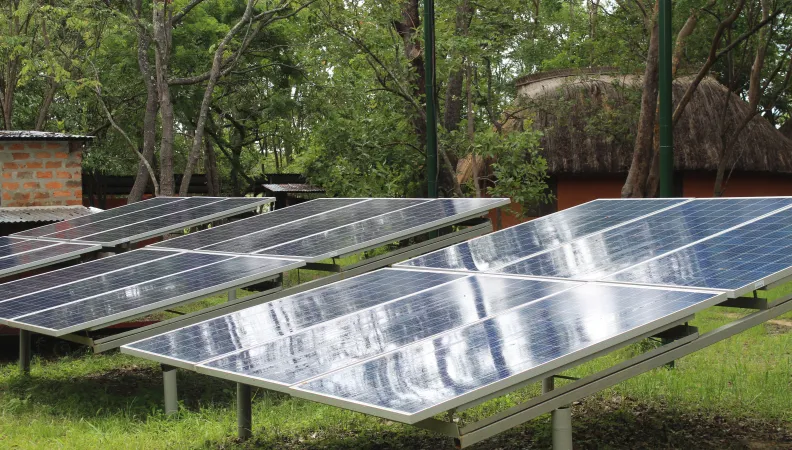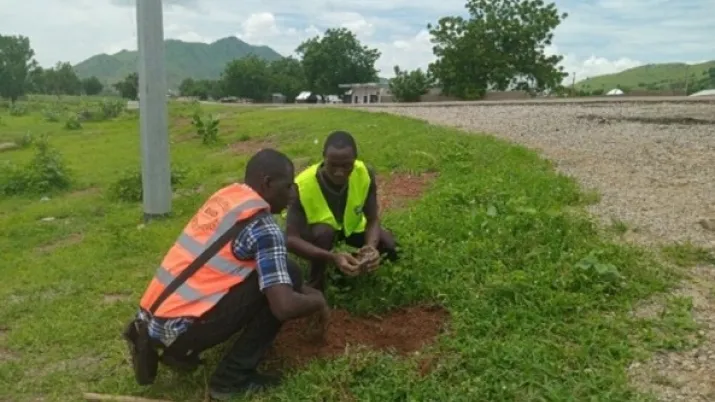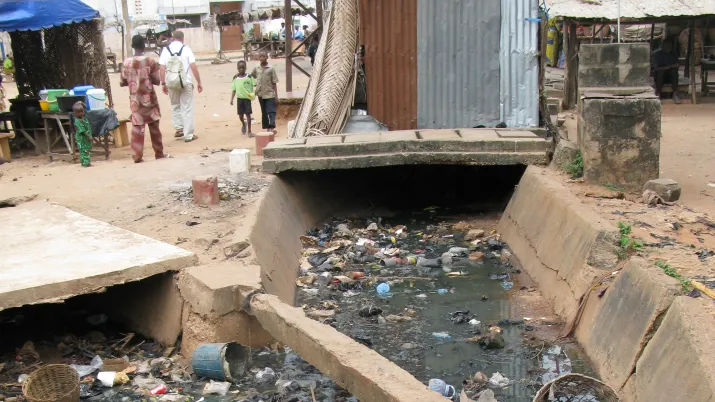Share the page
When field experience empowers access to electricity
Published on

The field experience of some NGOs and private enterprises involved in rural electrification via mini grids has proven very enlightening to funding partners. The French Development Agency (AFD), the French Environment and Energy Management Agency (Ademe) and the French Facility for Global Environment (FFEM) capitalise the learnings of these actors to make their own approach to the sector more efficient.
This article was published on the website www.afd.fr
700 million people, mainly in Africa, still live with no access to electricity, and current investments remain inadequate to attain the goal of universal access to energy by 2030 (SDG 7). It is then a matter for the funding partners financing the sector to grow their activity and actually improve effectiveness on the ground.
Within this framework, the extensive field experience of Non-Governmental Organisations (NGOs), and private concerns active in the installation and operation of electrical mini-grids for rural electrification, is of considerable value to these funding partners when formulating new projects. The AFD, FFEM and Ademe seek to capitalise upon these learnings: “Mini-grids are installations for producing and distributing electricity that are deployed in areas too far away from existing electrical grids”, explains Grégoire Léna, project team manager at the Energy division of the AFD. “They can provide reliable service to populations who currently have no access to electricity. However, we have seen that a number of mini-grid projects aren’t that sustainable, or the customer connection rate is patchy at times.”
Capitalising for greater efficiency
To better identify and understand these challenges, while also clearing pathways to solutions, the AFD and its partners have approached some of their funding recipients who are active in the development of mini-grid solutions. “We have invited three international partners, namely Gret, Geres and Fondem, plus three private actors, who are Sagemcom, Nanoé and Innovations énergie développement (IED), to share and discuss their experiences in matters of mini-grid-based electrification projects, explains Marthe-Valère Feuvrier, Assessment mission head at the Assessment and learning department of the AFD. Our goal is to highlight good practices, and to catalyse synergies and potential collaborations between NGOs and private actors.”
Some of these organisations have undoubtedly been pioneers in the development of mini grid solutions over some twenty years. “We would hope to capitalise on the respective experiences of these actors, with their different activity rationales and skillsets”, adds Jérôme Gastaud, Head of the Climate and energy project at the FFEM. “Ultimately, our goal is to really understand the key factors in upscaling, and revisit the sector’s support approaches to deliver holistic and efficient solutions for all.” What’s more, these actors bring innovation so it’s worth analysing the results and encouraging replication of good practices. “NGOs bring social innovation in the projects they implement, and private actors have brought technical innovation into the sector”, points out Iris Nicomedi, Head of International Missions at Ademe.
Possible improvement routes
Capitalisation work particularly focuses on the ways the projects are run, the timescales and deadlines for preparation and implementation, and the roles of public institutions and funding partners. “Learnings and good practices can be retained for application in regulatory contexts that may at times be too rigid or incomplete”, explains Grégoire Léna. “This pooling method also reveals the support necessary for reinforcing local capabilities, and this applies for the infrastructure operators, the users and the local economic ecosystem.”
Out of these works emerge several possible areas for improvement. Foresight, flexibility and serious dialogue at local level appear to be the keys to success in electrification projects. Support for the financing of generation and consumer units has also been recognised as necessary to ensure the impacts sought are achieved and maximised.
In addition, stimulating the local entrepreneur talent pool and training (especially young people), have emerged as essential to local economic development and the sustainability of electrification infrastructures. Further, the ambition of change at scale, in terms of geographical coverage and impact, assumes the creation of long-term partnerships with local actors able to support this ambition and its implementation. Combining these approaches - foresight, flexibility, dialogue, stimulation, support for users - cements the economic viability of these operations and the sustainability of infrastructures.
This would be further enhanced through improved flexibility and openness, driving the search for synergies between actors during project selection procedures by financial organisations, to encourage innovation in delivery and in the technical options available to beneficiaries. Grégoire Léna sums up: “It’s through a diversity of means of accessing energy, and a diversity of actors, that the goal of universal access will be attained.”
Drill down:
Details of the feedback from the NGO and private actors, together with the resulting recommendations, are available online on a platform that brings together the results of this capitalisation: experience and recommendation sheets, interview videos, testimony from actors in the field. This content is organised educationally and interactively.



